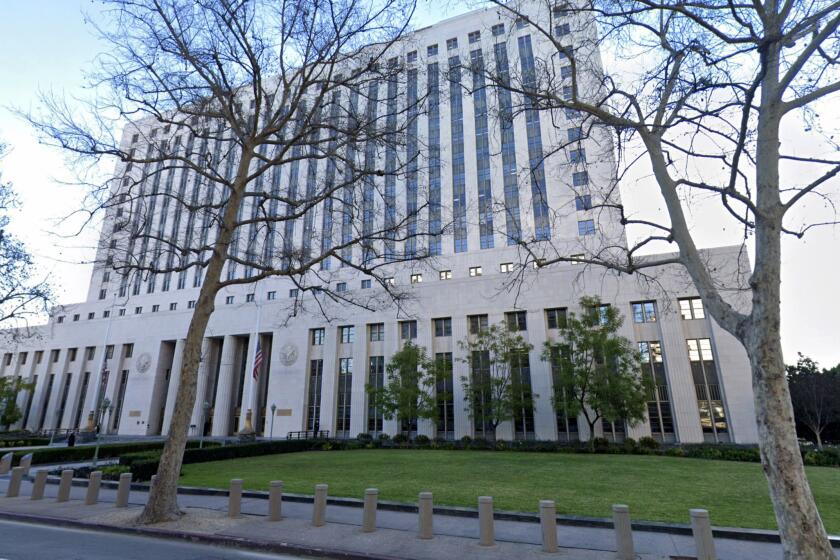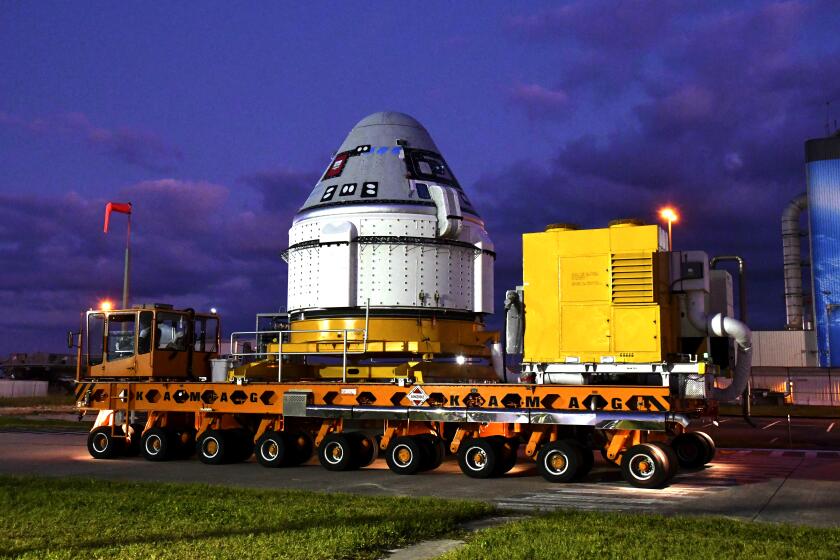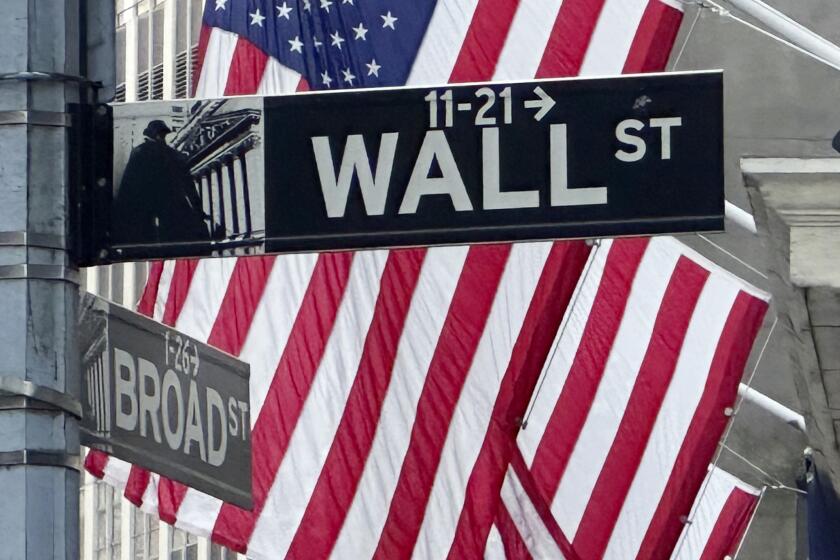Japanese Pour $8.96 Billion Into U.S. Real Estate : California Deals Worth $2.48 Billion in First 8 Months of ‘88, Study Says
Japanese investors bought $8.96 billion worth of U.S. real estate projects in the first eight months of 1988 and appear headed toward record purchases by year’s end, according to a new study by a Los Angeles-based real estate consulting firm.
California led the nation in sales to the Japanese, accounting for $2.48 billion worth of projects, or 28% of the total, said the study by Kenneth Leventhal & Co. New York was second and, in a surprise, Illinois surpassed Hawaii as the third-most-popular spot for Japanese real estate investors.
The study measures major real estate investments and does not cover transactions of less than $1 million, single-family home sales or investments in factories and manufacturing facilities.
The study found that the Japanese still invested most of the money in office buildings--$5.34 billion in the first eight months of the year. But they continued a recent trend of diversifying into projects with greater risk and greater potential return, such as new hotel and retail construction projects.
Investment Climbs Steadily
“We find the Japanese getting into suburban office buildings, mixed-use projects and more retail projects,” said Jack Barthell, a Leventhal partner who directed the study along with another partner, Jack R. Rodman.
According to figures gathered by Leventhal over the past three years, Japanese annual investment in U.S. real estate has climbed steadily from $1.86 billion in 1985 to $12.77 billion last year.
Rodman said he expects the 1988 year-end total will top last year’s figure, despite a downturn in Japanese investment in the first quarter of this year as a result of jitters about the stock market crash and some deterioration in the value of the yen.
Leventhal’s estimates of Japanese investment in U.S. real estate run higher than those of other organizations, such as Salomon Bros., the New York investment bank, and Bank of America in San Francisco.
See Picture as More Complete
Part of the explanation is that Leventhal counts the estimated value of a completed project upon ground breaking while more conservative trackers count only the actual expenditures as they are made.
Barthell and Rodman contended in an interview that their method provides a more complete picture of the impact of Japanese investors on the U.S. economy. A study of 1987 acquisitions released last spring by Leventhal said Japanese investors were diversifying outside their long-time favorite markets of Hawaii, California and New York in favor of Chicago, Boston, Atlanta and suburban hot spots such as Orange County.
The findings for the first eight months of the year track that contention, with Illinois, Georgia and Massachusetts registering substantial increases in Japanese investment.
Hawaii has long been the leading target for Japanese investors and its decline to fourth place on the new list was something of a surprise.
Part of the reason is that Hawaii has reached a saturation point, with the Japanese acquiring almost every major property for sale. A backlash among residents to the concentration of Japanese investment also slowed the Japanese appetite for purchases there.
But another factor, according to Rodman and Barthell, is a fear among the Japanese that a glut of luxury resort developments has made the islands vulnerable to even a slight downturn in the U.S. economy.
Categories of Investors
Leventhal recently completed a study of the Hawaiian economy for a major Japanese bank with substantial loans and investments in the islands. Rodman said the bank, which he declined to identify, is concerned about the amount of its lending in Hawaii. The state, the bank believes, is too dependent on tourism, making the islands vulnerable to a recession that could lead to a potentially disastrous decrease in the number of visitors.
The study also identified categories of Japanese investors. Real estate development and life insurance companies accounted for more than half of the investments in the first eight months of the year. Individual investors and investment firms constituted another 16%.
The jump in the standings for Illinois was the result of acquisitions of several prime office buildings and hotel developments in Chicago. The study put the eight-month investment total at $1.34 billion for Chicago, representing all major purchases in the state.
New York City led the list of metropolitan areas, with total investments of $1.49 billion, followed by Los Angeles at $1.36 billion, slightly ahead of Chicago.
The statistics, because they cover the first eight months of the year, do not include the Sept. 30 agreement by Japan’s Saison Seibu Group to purchase the Inter-Continental Hotels chain for $2.27 billion from its British owners, Grand Metropolitan. While the chain is British-owned, its headquarters are in Montvale, N.J., and many of its properties are in the United States.
Barthell said he expects more big Japanese companies to buy entire entities in the future since the Inter-Continental deal and Aoki Corp.’s acquisition of the Westin hotel chain last year paved the way.
JAPANESE INVESTMENT IN U.S.
‘87 Total % of ’88 Total % of Location* Millions $ Total Millions $ Total Atlanta 130 1 699 8 Boston 162 1 458 5 Chicago 1,080 4 1,343 15 Dallas 950 4 305 3 Los Angeles 4,570 17 1,366 15 New York 5,831 22 1,498 17 Oahu (Honolulu) 4,420 17 768 9 Orange Cty. 380 1 306 3 Phoenix 1,590 6 40 0 San Diego 400 2 408 5 San Francisco 1,172 4 179 2 Seattle 731 3 335 4 Other 4,924 18 1,253 14 TOTAL 26,340 100 8,958 100
* Metropolitan statistical area






